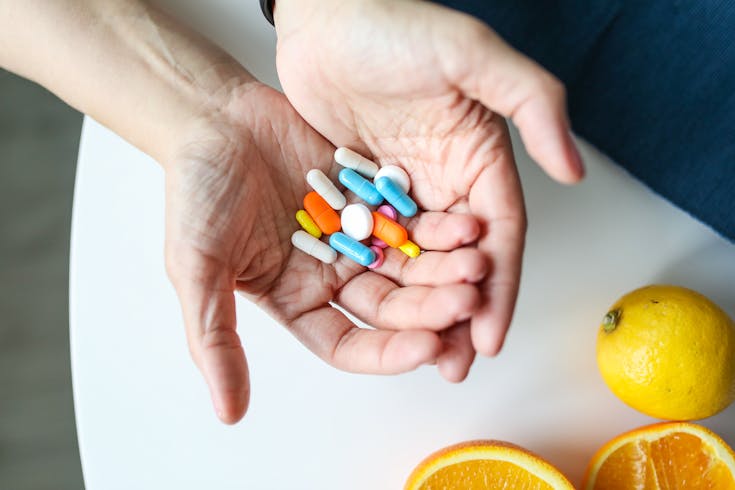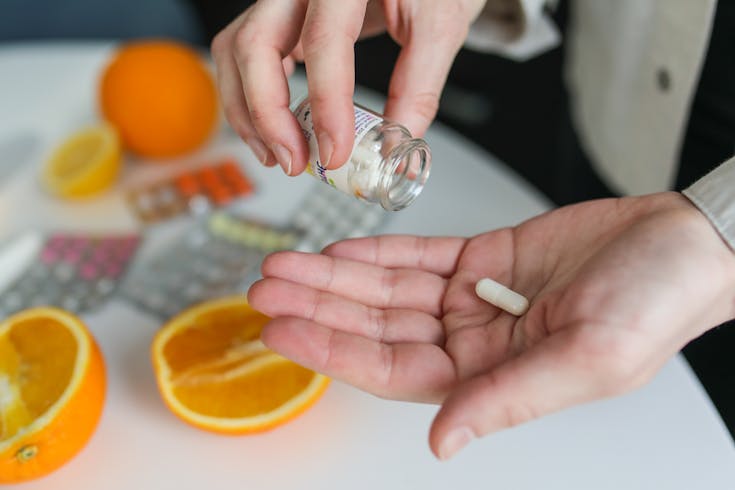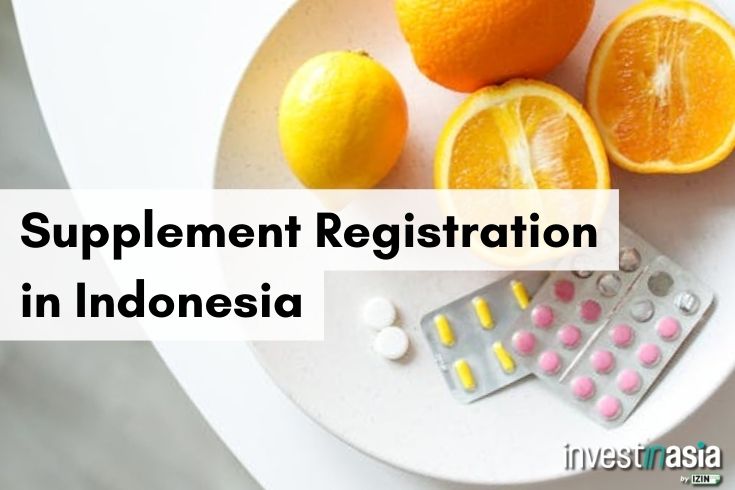In today’s health-conscious world, more people are turning to health supplements to fulfill their nutritional needs and enhance their well-being. This trend has not gone unnoticed by international investors, particularly in countries like Indonesia, where the health supplement market is booming. If you’re considering expanding your business into Indonesia, understanding the regulations and procedures for registering health and food supplements is crucial.
In this article, we’ll delve into the intricacies of health and food supplement registration services in Indonesia, exploring the regulations, procedures, and requirements involved.
Also read: What Is BPOM in Indonesia: Its Role and Regulation
Regulation of Health and Food Supplement Registration in Indonesia


In Indonesia, the regulation of therapeutic products, narcotics, psychotropic and addictive substances, traditional medicines, cosmetics, health supplements, and food safety is overseen by the National Agency of Drug and Food Control, also known as Badan Pengawas Obat dan Makanan (BPOM).
As per Regulation No. 27/2017 of the BPOM, food encompasses biological products from agriculture, plantations, forestry, fisheries, livestock, and water, whether processed or unprocessed, for human consumption. Regulation No. 11/2020 defines food supplements as ‘health supplements,’ intended to fulfill nutritional needs and maintain, enhance, or improve health functions, comprising vitamins, minerals, amino acids, and/or other non-plant ingredients.
The control of drugs and food in Indonesia is complex, prompting the establishment of a comprehensive pre-market and post-market monitoring system by BPOM. Pre-market assessment ensures compliance with safety and quality standards before retail, while post-market control monitors products already in circulation.
Also read: BPOM Indonesia Food Regulation
Registration Category
Based on Regulation of The BPOM No. HK.00.05.41.1381, the registration of food supplements is categorized into new registration and variation registration.
New Registration
Category 1:
Registration of food supplements containing one or more ingredients such as vitamins, minerals, amino acids, carbohydrates, proteins, fats, or other isolates;
Category 2:
Registration of food supplements containing one or more ingredients such as vitamins, minerals, amino acids, carbohydrates, proteins, fats, other isolates, and natural ingredients;
Category 3:
Registration of food supplements from categories 1 and 2 with claims of new usage, new dosage form, new dosage, and new dosing regimen.
Variation Registration
Category 4:
Registration of food supplements that have obtained marketing authorization with:
- Product name change without composition change;
- Change or addition of packaging size;
- Changes in labeling claims that do not alter benefits;
- Packaging design changes;
- Factory name or licensor name change without change in ownership status;
- Importer name change without change in ownership status.
Category 5:
Registration of food supplements that have obtained marketing authorization with:
- Changes in specifications and/or raw material analysis methods;
- Changes in specifications and/or finished product analysis methods;
- Stability changes;
- Production technology changes;
- Production location changes;
- Packaging changes or additions.
Category 6:
Registration of food supplements that have obtained marketing authorization with:
- Formula change, or composition where the main ingredients belong to one group;
- Addition of supplementary ingredients that do not alter benefits.
Also read: What is KBLI in Indonesia: Complete Guide for Foreigner
Health Supplement Registration Procedure in Indonesia


Pre-Assessment
The registration process typically involves two main steps, beginning with pre-assessment. During this stage, documents are evaluated for completeness, and the registration categorization is determined. This initial phase usually takes around 20 working days.
Assessment
Following pre-assessment, the formal assessment of documents and supporting data takes place. This step is crucial for evaluating the safety and quality of the health supplements. It’s important to note that completion of pre-assessment and assessment does not guarantee approval, as refusal may occur due to incomplete documentation or other factors, with non-refundable payment terms.
Requirements for Health and Food Supplement Registration
Mandatory Documentation
Several documents are required for health and food supplement registration in Indonesia, including:
- Import license (for imported products)
- Manufacturer’s authorization letter
- Legalized Certificate of Free Sale from the origin country’s government
- Trade business license
Halal Certification
While Halal certification was previously voluntary, Law No. 33/2014 mandates its gradual implementation for many consumer products and services entering and trading in Indonesia. While not directly related to health and food supplement registration, obtaining Halal certification can enhance market acceptance and consumer trust.
Navigating the regulations and procedures for health and food supplement registration in Indonesia can be complex, but it’s essential for ensuring compliance and market entry success. By understanding the role of BPOM, the registration process, and the necessary requirements, businesses can streamline their expansion efforts and tap into Indonesia’s thriving health supplement market.
To successfully register your health and food supplement with Indonesia’s BPOM, ensure compliance with regulations and gather notarized documents. Consider partnering with a local expert for guidance. Register online, prepare electronic documents, and be patient as the process can take months.
For simpler and hassle-free Indonesia food registration process, you can rely on InvestinAsia’s services. We can help you with Business Registration Number Indonesia and Business Licenses and permit.



